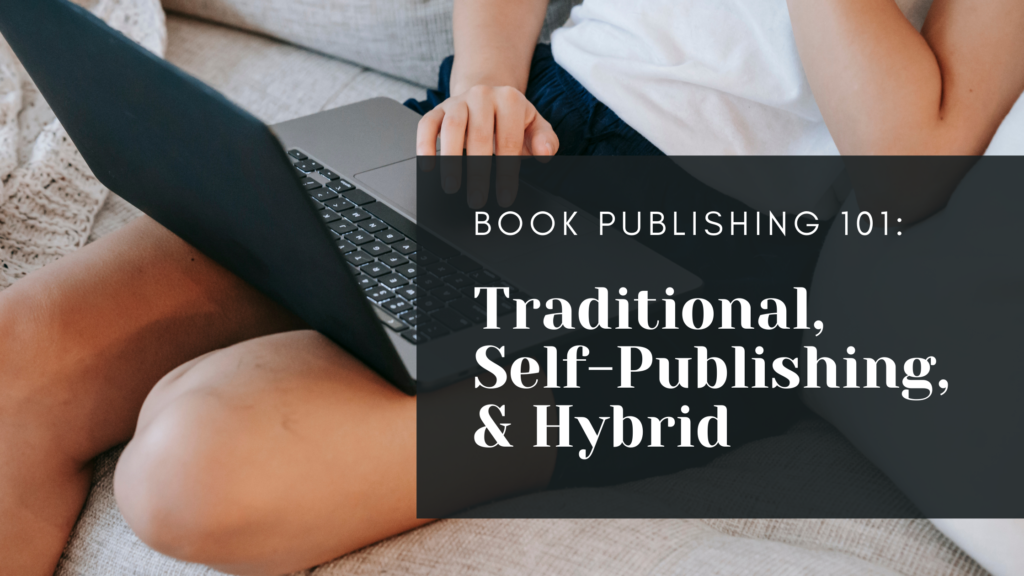Straight out of college, I worked at a small publishing house as an editorial assistant. Fast forward about 10 years later, my first novel was published by a different small publishing house. The book publishing scene has changed dramatically in that time, and I continue to learn.
I wanted to share a little about Traditional Publishing, Self-Publishing, and Hybrid Press Publishing. This is not an in-depth post, but it’s a brief overview.

Until just recently, self-publishing has received a lot of side-eye from traditional publishing…and honestly, it probably continues. Self-publishing threw the traditional publishing world on its head, rewriting the rules of who can write and then share a book to the entire world.
Traditional Publishing
Traditional publishing has been the standard in the recent past where a traditional publishing house works with literary agents to discover authors and bring their book into the world. Traditional publishing comes with gatekeepers of literary agents, editors, and submission processes. Authors are vetted, and their stories are analyzed for sellability.
Pros:
- High-quality stories
- Editing team
- Marketing team
- Cover design team
- Stamp of approval from a publishing house
Cons:
- Intense submission process
- Author opinion matters less
- Contracted obligations
Financials:
- an advance is common (a certain amount of money upon the signing of book contract)
- royalties to be received (these don’t start until your publisher makes back the original advance)
- royalty percentages differ (often lower percentage for print & higher percentage for eBooks)
- you may pay for some or all marketing
Self-Publishing or Independent Publishing
The upset of a century, self-publishing comes with no gatekeepers. If you’re willing to put in the time, energy, and money into your own book and set it up with Amazon or another platform for publishing, your book can be in readers hands as soon as you want.
Pros
- No gatekeepers
- Your timeline
- Easily accessible
- Full rights to your books
- Anything is publish-ready!
Cons
- no team of editors, marketers, or designers
- DIY or pay freelancers
- Anything is publish-ready.
Financials:
- no advance
- all royalties are yours (~ 70%)
- you pay for marketing
Hybrid Press Publishing
To help writers meet their desire to be published with a team behind them, a number of hybrid press publishing options have sprung up in light of the self-publishing revolution. A hybrid press often consists of a team of editors and designers to help a writer craft a quality product. It’s a great option for individuals who have a lot of expendable income to expedite their manuscript to publishing with the added benefit of a “look-a-like traditional publishing house.”
Pros:
- editing team
- design team
- publishing team
Cons:
- no marketing team
- possibly no marketing plan
Financials:
- You pay for every service
- Higher royalties to you
- You pay for marketing
Questions to Ask:
- Do I retain the rights to my books?
- Who controls pricing on platforms?
The differences between traditional publishing, self-publishing, and hybrid publishing can get quite granular, but this is just an overview to help you (and me) continue to decide what makes the most sense for each book! What would you add to these quick explanations?
Leave a Reply